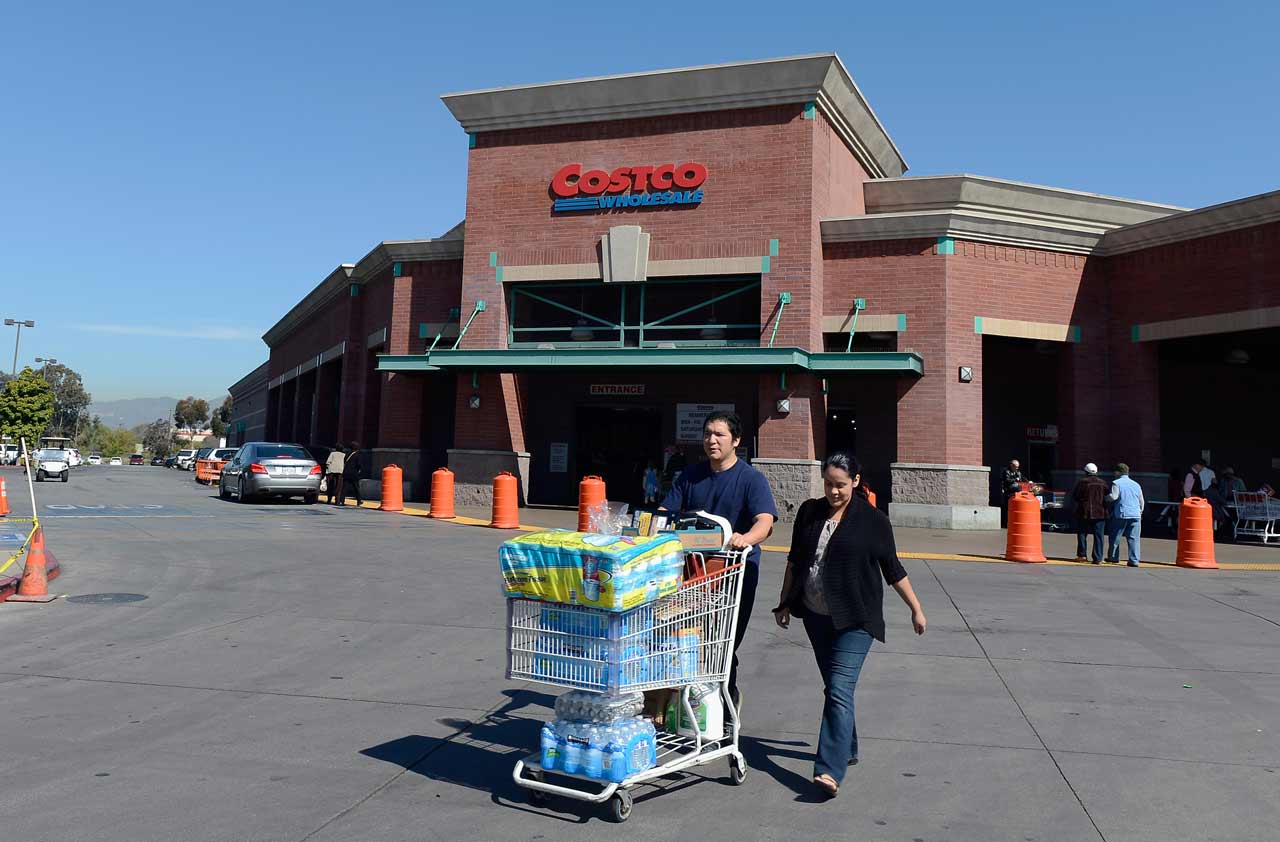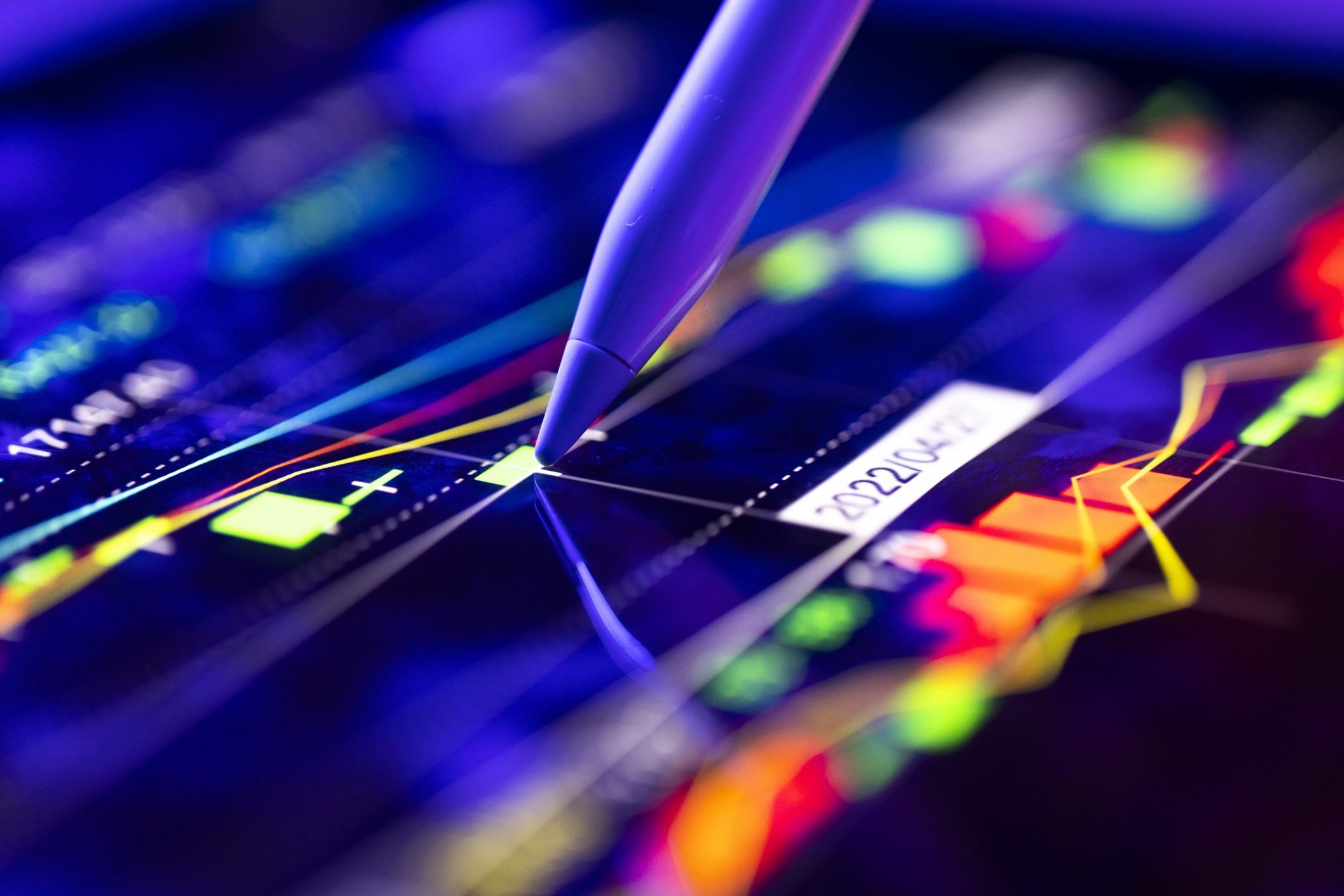Why I Paid a Premium for Costco
It isn’t just the shopping experience that has sold me on the stock. I also love how Costco runs its business.


Profit and prosper with the best of Kiplinger's advice on investing, taxes, retirement, personal finance and much more. Delivered daily. Enter your email in the box and click Sign Me Up.
You are now subscribed
Your newsletter sign-up was successful
Want to add more newsletters?

Delivered daily
Kiplinger Today
Profit and prosper with the best of Kiplinger's advice on investing, taxes, retirement, personal finance and much more delivered daily. Smart money moves start here.

Sent five days a week
Kiplinger A Step Ahead
Get practical help to make better financial decisions in your everyday life, from spending to savings on top deals.

Delivered daily
Kiplinger Closing Bell
Get today's biggest financial and investing headlines delivered to your inbox every day the U.S. stock market is open.

Sent twice a week
Kiplinger Adviser Intel
Financial pros across the country share best practices and fresh tactics to preserve and grow your wealth.

Delivered weekly
Kiplinger Tax Tips
Trim your federal and state tax bills with practical tax-planning and tax-cutting strategies.

Sent twice a week
Kiplinger Retirement Tips
Your twice-a-week guide to planning and enjoying a financially secure and richly rewarding retirement

Sent bimonthly.
Kiplinger Adviser Angle
Insights for advisers, wealth managers and other financial professionals.

Sent twice a week
Kiplinger Investing Weekly
Your twice-a-week roundup of promising stocks, funds, companies and industries you should consider, ones you should avoid, and why.

Sent weekly for six weeks
Kiplinger Invest for Retirement
Your step-by-step six-part series on how to invest for retirement, from devising a successful strategy to exactly which investments to choose.
I owned shares in Costco (symbol COST, $186) in the early 1990s thanks to its merger with Price Co., a San Diego, Calif., warehouse store in which I held shares. At a time when the rest of the stock market was going gangbusters, my investment in Costco went nowhere. After two whole years, my patience was exhausted. I sold.
Naturally, that was the catalyst needed to break the stock out of its funk. I've wanted to repurchase Costco shares practically ever since, but I've been deterred by the math. Based on my favorite formula–buy a stock when the price-earnings ratio is less than the sum of the earnings-growth rate and the dividend yield–Costco shares were perpetually too expensive. Even in the midst of the 2008 financial crisis, when shares of other companies could be had for a song, Costco was a touch above my target price.
So I waited. And waited. Finally, when the stock market swooned in early February, I bought. Costco shares were still too expensive based on my formula. But because that seems to be the norm, I decided it wouldn't dissuade me from buying a company I really wanted to own.
From just $107.88 $24.99 for Kiplinger Personal Finance
Become a smarter, better informed investor. Subscribe from just $107.88 $24.99, plus get up to 4 Special Issues

Sign up for Kiplinger’s Free Newsletters
Profit and prosper with the best of expert advice on investing, taxes, retirement, personal finance and more - straight to your e-mail.
Profit and prosper with the best of expert advice - straight to your e-mail.
Everything about its business impresses me. Let's start with the fact that I have been a Costco shopper for 28 years (it says so on my membership card). I've always been a fan of Costco quality, selection and prices, and part of what sold me on Costco as an investment is that I find myself buying more–and more expensive–products from the retailer every year.
More than paper towels. I still fill my pantry at Costco warehouses, of course. But because of Costco's liberal return policies, I find myself buying big-ticket items online that I would never buy sight unseen from another company. I tested big-ticket purchases when I moved to a new house that had a game room. Costco.com was advertising a billiards-table package that appeared to be $500 to $1,000 cheaper than anything comparable. But it was still expensive. I wanted to see and touch it before spending so much money. I called customer service to ask whether I could find it in a warehouse. The representative said no but, sensing my concern, reminded me that I could return it for any reason. "I can't put a billiard table in my car and drive it back to the warehouse," I objected. "We'll pick it up at no charge," the rep said. Two weeks later, Costco delivery agents were setting up the table in my game room. It's not going back.
Next was a leather living room set. Then outdoor furniture. Soon, I was buying cars through Costco's auto-buying program and using the company's affiliates to insure my house and put solar panels on the roof. I went to Hawaii through Costco travel.
But it isn't just the shopping that has sold me on the stock. I also love how Costco runs its business, starting with the fact that the company promotes from within. Current chief executive W. Craig Jelinek rose through the ranks, spending 20 years in various positions in the company's warehouses before joining senior management. Perhaps because top officers know what it's like to work in the warehouses, warehouse employees are paid well and garner generous benefits. Being a good employer allows the company to hire and retain exceptional employees, which makes the business run more smoothly.
Still, even though I'm a Costco fan, the cheapskate in me flinches a bit at its stock price. At $183 a share, I paid almost 25 times estimated earnings for a company that's expected to increase profits at an annual pace of 17% in the fiscal year that ends in September and pays a paltry dividend (the stock yields 1.1%). According to my formula, I shouldn't have paid more than 17 times earnings. But the stock is already up about $3 per share since I bought in. It may prove to be as big a bargain as everything else I buy at Costco.
Profit and prosper with the best of Kiplinger's advice on investing, taxes, retirement, personal finance and much more. Delivered daily. Enter your email in the box and click Sign Me Up.

-
 Ask the Tax Editor: Federal Income Tax Deductions
Ask the Tax Editor: Federal Income Tax DeductionsAsk the Editor In this week's Ask the Editor Q&A, Joy Taylor answers questions on federal income tax deductions
-
 States With No-Fault Car Insurance Laws (and How No-Fault Car Insurance Works)
States With No-Fault Car Insurance Laws (and How No-Fault Car Insurance Works)A breakdown of the confusing rules around no-fault car insurance in every state where it exists.
-
 Why Picking a Retirement Age Feels Impossible (and How to Finally Decide)
Why Picking a Retirement Age Feels Impossible (and How to Finally Decide)Struggling with picking a date? Experts explain how to get out of your head and retire on your own terms.
-
 Small Caps Can Only Lead Stocks So High: Stock Market Today
Small Caps Can Only Lead Stocks So High: Stock Market TodayThe main U.S. equity indexes were down for the week, but small-cap stocks look as healthy as they ever have.
-
 Dow Adds 292 Points as Goldman, Nvidia Soar: Stock Market Today
Dow Adds 292 Points as Goldman, Nvidia Soar: Stock Market TodayTaiwan Semiconductor's strong earnings sparked a rally in tech stocks on Thursday, while Goldman Sachs' earnings boosted financials.
-
 Nasdaq Rises 2.7% as Musk Tweets TSLA Higher: Stock Market Today
Nasdaq Rises 2.7% as Musk Tweets TSLA Higher: Stock Market TodayMarkets follow through on Friday's reversal rally with even bigger moves on Monday.
-
 Stocks Retreat as Shutdown Continues: Stock Market Today
Stocks Retreat as Shutdown Continues: Stock Market TodayWhile the main indexes closed lower today, Delta and PepsiCo gained ground on encouraging earnings reports.
-
 Dow Adds 300 Points, Ends Losing Streak: Stock Market Today
Dow Adds 300 Points, Ends Losing Streak: Stock Market TodayThe Dow, the S&P 500 and the Nasdaq head into the weekend on high notes after posting gains for the first time since Monday.
-
 The Most Tax-Friendly States for Investing in 2025 (Hint: There Are Two)
The Most Tax-Friendly States for Investing in 2025 (Hint: There Are Two)State Taxes Living in one of these places could lower your 2025 investment taxes — especially if you invest in real estate.
-
 The Final Countdown for Retirees with Investment Income
The Final Countdown for Retirees with Investment IncomeRetirement Tax Don’t assume Social Security withholding is enough. Some retirement income may require a quarterly estimated tax payment by the September 15 deadline.
-
 Are These the Next Stocks to Split?
Are These the Next Stocks to Split?Netflix's recent stock split makes its shares more accessible to investors. Could these high-priced stocks be next?